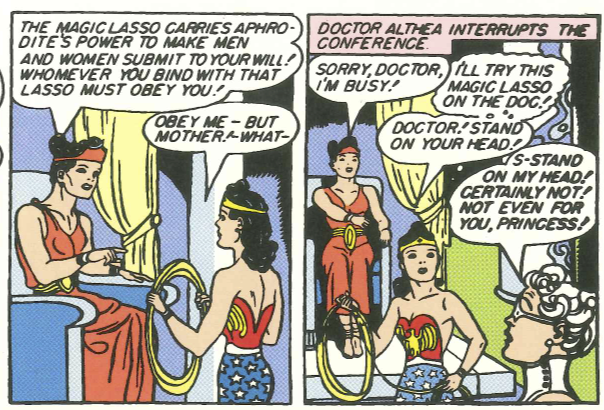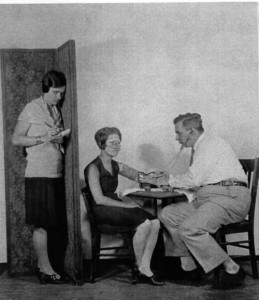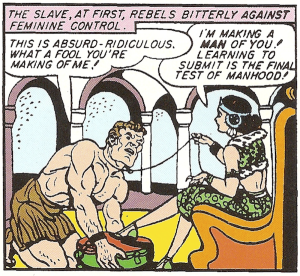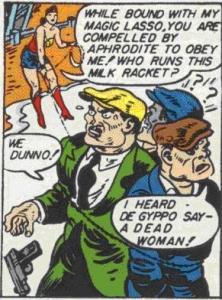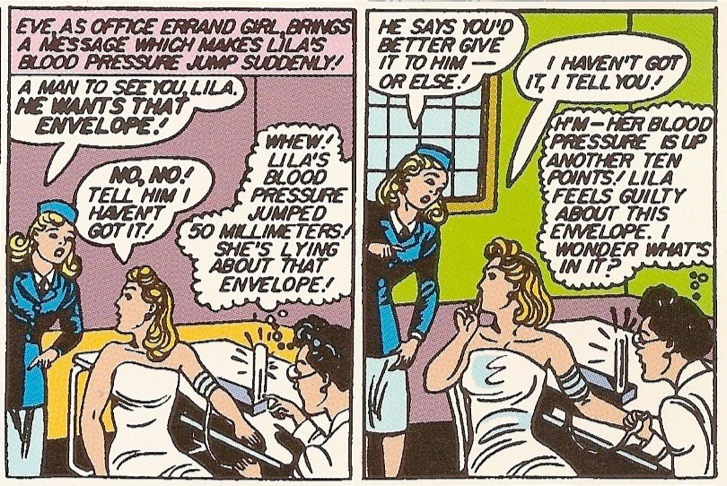See my tweets summarizing Day 1 and Day 2
I think I went kind of crazy in the amount of tweeting I did today. But I don’t see how to edit it down for this purpose, so here you go. Again, I’ve included some of the talkback, even though it wasn’t all realtime, and some other live-tweeters.
Heather’s Lecture
Good morning! Your intrepid live-tweeter here, ready for the final day of Heather Douglas's #DescartesLectures on #ScienceValuesDemocracy
— Matthew J Brown (@thehangedman) September 7, 2016
Heather Douglas's 3rd & final #DescartesLectures – "Science Communication: Beyond the Deficit Model" #ScienceValuesDemocracy
— Matthew J Brown (@thehangedman) September 7, 2016
HD: I wish I could divide myself and see all of your talks at this conference. #DescartesLectures #ScienceValuesDemocracy
— Matthew J Brown (@thehangedman) September 7, 2016
HD: Science communication is the primary way in which the public and scientific community interact. #DescartesLectures
— Matthew J Brown (@thehangedman) September 7, 2016
HD: Science is one of the most trusted institutions in our societies, but there segments of the public who do not accept some key claims.
— Matthew J Brown (@thehangedman) September 7, 2016
HD: Scientists blame rejection of science on lack of science literally, which is generally low. Not totally wrong. #DescartesLectures
— Matthew J Brown (@thehangedman) September 7, 2016
Typo! That should be “science literacy” not “science literally.”
HD: But the problem is not that public lacks factual scientific knowledge, but misunderstanding of scientific reasoning and practice.
— Matthew J Brown (@thehangedman) September 7, 2016
HD: Public needs to understand the role of values in scientific practice. Scientists ned to commit to dialogue w/ public. #DescartesLectures
— Matthew J Brown (@thehangedman) September 7, 2016
HD: Worries about scientific literacy date back to Sputnik & perceived crisis; became systematic pursuit in 1970s. #DescartesLectures
— Matthew J Brown (@thehangedman) September 7, 2016
HD: Focus on grasp of facts usually swamps other aspects of accounts of science literacy, b/c easier to test. #DescartesLectures
— Matthew J Brown (@thehangedman) September 7, 2016
HD: The "deficit model" is false, empirically. Increased knowledge of scientific facts can lead to increased skepticism about science.
— Matthew J Brown (@thehangedman) September 7, 2016
HD: Problem may be that sci literacy tests are too simple. Little bit of knowledge is dangerous. #DescartesLectures #ScienceValuesDemocracy
— Matthew J Brown (@thehangedman) September 7, 2016
HD: "Motivated reasoning" as framing of public controversy over science is disparaging of the public. #DescartesLectures
— Matthew J Brown (@thehangedman) September 7, 2016
HD: Using framing effects to improve public attitudes towards / agreement w/ science is problematically manipulative. #DescartesLectures
— Matthew J Brown (@thehangedman) September 7, 2016
HD: Approaches of Kahan, Nisbet, etc make disagreements over politically relevant science permanently intractable. #DescartesLectures
— Matthew J Brown (@thehangedman) September 7, 2016
HD: These social scientists incorrectly assume value-free science, dichotomy between motivated and accuracy-directed reasoning.
— Matthew J Brown (@thehangedman) September 7, 2016
HD: Motivating reasons could be ignoring evidence (bad) or demanding more evidence in some cases (good; inductive risk). #DescartesLectures
— Matthew J Brown (@thehangedman) September 7, 2016
HD: In value-based disagreements about science, one should be able to articulate what hypothetical evidence would change your mind…
— Matthew J Brown (@thehangedman) September 7, 2016
HD: …Otherwise, the disagreement has little or nothing to do with science, and we can leave science out of the dispute. #DescartesLectures
— Matthew J Brown (@thehangedman) September 7, 2016
HD: Theory of how values legitimately influence assessment of evidence can provide constructive path for engaging disagreement.
— Matthew J Brown (@thehangedman) September 7, 2016
HD: Having this productive dialogue requires a public that understands scientific practice and role of values therein. #DescartesLectures
— Matthew J Brown (@thehangedman) September 7, 2016
HD: We don't need fact-based scientific literacy. We need understanding of process & practice of science. "Scientific fluency"?
— Matthew J Brown (@thehangedman) September 7, 2016
HD gets a little choked up talking about the Blackawton Bees study. Really a remarkable story. https://t.co/03lvhqhjcx #DescartesLectures
— Matthew J Brown (@thehangedman) September 7, 2016
Blackawton Bees, see also: https://t.co/aAXPRyStbt #DescartesLectures #ScienceValuesDemocracy
— Matthew J Brown (@thehangedman) September 7, 2016
HD: Ways that citizens can engage w/ science – Citizen science initiatives, deliberative forums, collaborative research. #DescartesLectures
— Matthew J Brown (@thehangedman) September 7, 2016
HD: Also, public-expert interactions work out of ASU, and STIR embedded humanists, can foster engagement. #DescartesLectures
— Matthew J Brown (@thehangedman) September 7, 2016
HD: Successful "science communication" must be TWO-WAY. Not just a download of info. Citizens & scientists working together to decide.
— Matthew J Brown (@thehangedman) September 7, 2016
HD: We must give up the idea that science is a value-neutral source of authoritative statements. #DescartesLectures
— Matthew J Brown (@thehangedman) September 7, 2016
HD: Giving it up gains us a more productive discourse about science, and understanding of our current impasse, real basis of sci authority.
— Matthew J Brown (@thehangedman) September 7, 2016
Commentaries
Commentaries on HD's lecture on science communication by Dan Steel, then Eric Schliesser. #DescartesLectures #ScienceValuesDemocracy
— Matthew J Brown (@thehangedman) September 7, 2016
DS: Agrees w/ HD on problems w/ deficit model & motivated cognition. Focus on proposal for using inductive risk args to mediate conflicts.
— Matthew J Brown (@thehangedman) September 7, 2016
DS: Other possibilities – One side refuses to participate in debate over evidential sufficiency, or demands evidence that is unobtainable…
— Matthew J Brown (@thehangedman) September 7, 2016
DS: …Not clear how to interpret those moves, given HD's view. Both could reasonable. #DescartesLectures #ScienceValuesDemocracy
— Matthew J Brown (@thehangedman) September 7, 2016
DS: HD's proposal will only work if both parties TRUST the process and the researchers who will gather evidence. #DescartesLectures
— Matthew J Brown (@thehangedman) September 7, 2016
DS: Proposal implies a neutral moderator / arbiter for dialogue over contested science. What if no one is trusted? #DescartesLectures
— Matthew J Brown (@thehangedman) September 7, 2016
DS: Distrust is a major issue in all the major issues of contested science, e.g., climate change denial, anti-vaccination, creationism.
— Matthew J Brown (@thehangedman) September 7, 2016
DS: Need to know whose distrust is justified, who we ought to trust, as supplement to the view. #DescartesLectures #ScienceValuesDemocracy
— Matthew J Brown (@thehangedman) September 7, 2016
DS: Proposal may only work at local level when trust can be settled, not in large social issues. #DescartesLectures #ScienceValuesDemocracy
— Matthew J Brown (@thehangedman) September 7, 2016
HD responding to DS: My proposal was not for a formal process, but for the broad outlines of social discourse over these issues.
— Matthew J Brown (@thehangedman) September 7, 2016
Eric Schliesser: HD is evidence that you should follow your dreams, and you can succeed. "Values in science" c. 1999 was esoteric topic.
— Matthew J Brown (@thehangedman) September 7, 2016
ES: Appeal to science (in public, philosophical debate) is often used as a way to END discussions; disputing images of science unwelcome.
— Matthew J Brown (@thehangedman) September 7, 2016
ES: "Image of Science" (stereotype of how science works) even used to settled debates within science, esp social science. #DescartesLectures
— Matthew J Brown (@thehangedman) September 7, 2016
ES: 3 Big picture commitments in HD's #DescartesLectures – 1) Inductive risk, 2) Inductive uncertainty (fallibilism), 3) Neo-Popperianism(!)
— Matthew J Brown (@thehangedman) September 7, 2016
ES: Douglas is a Neo-Popperian in emphasizing criticism, disagreement, evidence that can change minds. /Not falsification #DescartesLectures
— Matthew J Brown (@thehangedman) September 7, 2016
ES: Although Popper is on the outs in Phil Sci, but secretly, I like Heather's neo-Popperianism. [Not so secret anymore, Eric!]
— Matthew J Brown (@thehangedman) September 7, 2016
ES: Douglas, in contrast with philosophical confirmationist accounts, thinks science is and will be surprising #DescartesLectures @TilburgU
— Sarah Wieten fediscience.org/@sarahwieten (@SarahWieten) September 7, 2016
ES: HD replaces image of science as uncontested source of facts/knowledge w/ image of collaborative enterprise w/ public. #DescartesLectures
— Matthew J Brown (@thehangedman) September 7, 2016
ES: HD's image of science is idealized, maybe in problematic ways. #DescartesLectures
— Matthew J Brown (@thehangedman) September 7, 2016
ES: Can any scientific claim be challenged in practice? Do scientists really challenge each others' work regularly? #DescartesLectures
— Matthew J Brown (@thehangedman) September 7, 2016
ES: Many scientific institutions (e.g., grant agencies) incentivize ignoring objections, stamping out heterodoxy. #ScienceValuesDemocracy
— Matthew J Brown (@thehangedman) September 7, 2016
ES: Need to create norms & incentives that promote critical interaction in science & w/ public, ensure alternatives explored.
— Matthew J Brown (@thehangedman) September 7, 2016
ES: Need to create incentives that discourage scientists from closing ranks against outside criticism. #DescartesLectures
— Matthew J Brown (@thehangedman) September 7, 2016
HD appreciates ES's reflection on her big picture, and attribution of neo-Popperianism. #DescartesLectures #ScienceValuesDemocracy
— Matthew J Brown (@thehangedman) September 7, 2016
Stephen John: Role of media? Communication of uncertainty is a mess. Media has its own agenda. HD: And its own pressures.
— Matthew J Brown (@thehangedman) September 7, 2016
HD: Science journalists no longer think "objectivity" means "telling both sides." Good! But they're not sure how to replace. We can help.
— Matthew J Brown (@thehangedman) September 7, 2016
HD: The idea that you should wait for consensus to trust science is CRAZY. Can't wait, and creates terrible incentives. #DescartesLectures
— Matthew J Brown (@thehangedman) September 7, 2016
Jan Sprenger: How to keep curiosity-based & blue skies research in science (& humanities) from being too marginalized? #DescartesLectures
— Matthew J Brown (@thehangedman) September 7, 2016
HD: Argument in favor of blue skies research has been completely undermined. But maybe it is reasonable that it is funded like humanities.
— Matthew J Brown (@thehangedman) September 7, 2016
TW: Focusing public debate on evidence may be a problem in cases like climate change, where the full evidence is opaque to individuals.
— Matthew J Brown (@thehangedman) September 7, 2016
TW: The reasons to trust are social-epistemic rather than individual eval of evidence. Need to establish trust in sci institution/process.
— Matthew J Brown (@thehangedman) September 7, 2016
HD: Yes, in some cases, but it is possible to present evidence and convince people about climate change. #DescartesLectures
— Matthew J Brown (@thehangedman) September 7, 2016
The explanation here was complicated, but what she was saying was that it is really possible to have the evidence presented in such a way, without all the little bits, e.g., the way that problems for the account of anthropogenic climate change arose, and were responded to.
HD: Part of expertise is so we don't have to do it all ourselves—division of cognitive labor. But they should be able to give us an account.
— Matthew J Brown (@thehangedman) September 7, 2016
Afternoon Sessions
Afternoon sessions! First up, Eric Schliesser on Status Quo Bias. #DescartesLectures #ScienceValuesDemocracy
— Matthew J Brown (@thehangedman) September 7, 2016
ES: "On Being a Methodological Analytical Egalitarian." We need to change the values in science, and so change the methodology.
— Matthew J Brown (@thehangedman) September 7, 2016
ES: Methodological Analytical Egalitarianism (MAE): Incorporate anti-hierarchical bias into research & view of expertise. #DescartesLectures
— Matthew J Brown (@thehangedman) September 7, 2016
ES: Lots of policy science is true yet pernicious – Product of, & reinforces, status quo bias. e.g., Crime stats. #ScienceValuesDemocracy
— Matthew J Brown (@thehangedman) September 7, 2016
ES: According to MAE, humans are naturally equal, and inequalities are product of institutions. #ScienceValuesDemocracy #DescartesLectures
— Matthew J Brown (@thehangedman) September 7, 2016
ES: MAE generates research questions, because any observed differences must have explanations in term of institution, norms, culture, etc.
— Matthew J Brown (@thehangedman) September 7, 2016
ES: MAE requires social scientists to be symmetrical about themselves and their subjects. #ScienceValuesDemocracy #DescartesLectures
— Matthew J Brown (@thehangedman) September 7, 2016
ES: There's been a real cultural shift in science in the last 60 years towards attempting to achieve consensus. #ScienceValuesDemocracy
— Matthew J Brown (@thehangedman) September 7, 2016
ES: Even if objective sci offers complete description of social reality, it can still exhibit status quo bias, taking institutions as given.
— Matthew J Brown (@thehangedman) September 7, 2016
ES: Science is 'true' but 'ideological' if it assumes that existing (social/human) reality is the only possibility. #ScienceValuesDemocracy
— Matthew J Brown (@thehangedman) September 7, 2016
Now, Selene Arfini (and collaborators) on social media and scientific literacy in democracy. #DescartesLectures #ScienceValuesDemocracy
— Matthew J Brown (@thehangedman) September 7, 2016
SA: Social media contribute to bubbles of shallow scientific understanding and scientific ignorance. #ScienceValuesDemocracy
— Matthew J Brown (@thehangedman) September 7, 2016
Now up: Kristina Rolin on social diversity and social values management. #DescartesLectures #ScienceValuesDemocracy
— Matthew J Brown (@thehangedman) September 7, 2016
KR: There's a tension between tempered equality of intellectual authority & shared standards for criticism. #ScienceValuesDemocracy
— Matthew J Brown (@thehangedman) September 7, 2016
KR: There is a tension w/in requirement of tempered equality of intellectual authority btw inclusiveness and egalitarianism, b/c racists etc
— Matthew J Brown (@thehangedman) September 7, 2016
KR: Shared standards should be extremely thin: empirical adequacy without nec. taking reliability or relevance of evidence for granted.
— Matthew J Brown (@thehangedman) September 7, 2016
https://twitter.com/danieljhicks/status/773536962829488128
KR: Social value mgmt ideal already has substantive enough constraints to exclude racists, sexists, etc, via tempered equality & uptake.
— Matthew J Brown (@thehangedman) September 7, 2016
I'm not sure KR's argument works as a response to @danieljhicks objection to SVM ideal. Denying the force of the dilemma he points to?
— Matthew J Brown (@thehangedman) September 7, 2016
KR seems willing to bite the bullet and rule out versions of feminism that clash with egalitarianism/liberal pluralism. #DescartesLectures
— Matthew J Brown (@thehangedman) September 7, 2016
familiar style handout for @ElenaRoccaPD's talk on 'same evidence, different assessment'-sure it will be great. @ranilillanjum @SDMumford
— Sarah Wieten fediscience.org/@sarahwieten (@SarahWieten) September 7, 2016
Torsten Wilholt: We always talk about the seriousness of error, but not about the positive consequences of getting it right. Need symmetry!
— Matthew J Brown (@thehangedman) September 7, 2016
TW: The harm of an error is comparative – How much worse than getting the right result? Consequences of error and truth are both needed.
— Matthew J Brown (@thehangedman) September 7, 2016
TW: Isn't considering benefits of true results wishful thinking? No, just a re-description of considering harm of foregoing truth.
— Matthew J Brown (@thehangedman) September 7, 2016
TW: Comparing consequences of error alone, without comparison, leads to wrong assessments, b/c mixes up different truth values w/ mistakes.
— Matthew J Brown (@thehangedman) September 7, 2016
Torsten's argument is really clever and creative, and seems to me spot on. #DescartesLectures #ScienceValuesDemocracy
— Matthew J Brown (@thehangedman) September 7, 2016
TW: Intuitive asymmetry btw failure to consider harms of error and benefits of true result = action / omission asymmetry. #DescartesLectures
— Matthew J Brown (@thehangedman) September 7, 2016
TW: But doing / allowing distinction isn't relevant to cases of epistemic risk management. #DescartesLectures #ScienceValuesDemocracy
— Matthew J Brown (@thehangedman) September 7, 2016
HD: TW is right, and explains why "Logical Interpretation" of Indirect Role (ala Kevin Elliott) is right. #DescartesLectures
— Matthew J Brown (@thehangedman) September 7, 2016
Final Panel Discussion
HD: In general, I favor pluralist institutional structures, though I was setting out general norms for public debate/engagement.
— Matthew J Brown (@thehangedman) September 7, 2016
HD: Expert authority is not a coercive type of authority. TW is right, we need an account of trust and trustworthiness of experts.
— Matthew J Brown (@thehangedman) September 7, 2016

